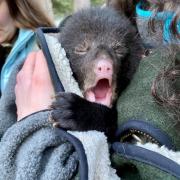
Boasting Maine’s Black Bears
Many don’t realize it, but at some point or another, you’ve likely been in the presence of a bear in the Maine woods. Here are some facts about our state’s bears!
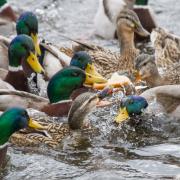
Skip the bread. Just watch instead!
Malnutrition, disease, habitat degradation, and habituation are serious consequences of feeding ducks and geese.
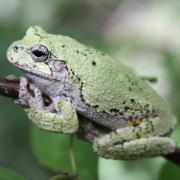
Mapping Maine’s Salamanders, Frogs, Turtles, and Snakes
Maine’s wildlife biologists rely on community members to share their observations, including you!
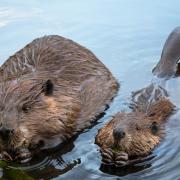
Happy Mother’s Day!
It only takes a quick look into the animal kingdom to see that motherhood comes in many forms.
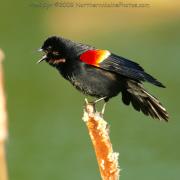
Maine Bird Atlas Final Season
The Maine Bird Atlas is in the home stretch but there is a lot of work to be done in the final season! We’ll get there, block by block, but we need your help. This 5-year statewide project will guide Maine’s future bird conservation efforts, and every submission helps!
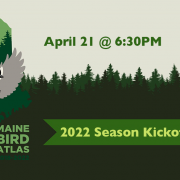
2022 Season Kickoff Meeting
On Thursday, April 21, 2022 at 6:30 pm (EDT) we’re kicking off the 5th and final season of the Maine Bird Atlas with an evening for Atlas volunteers to connect, strategize, get inspired, and hear all the latest atlas updates from the team of project coordinators!
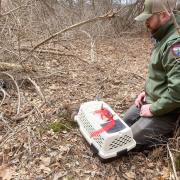
New England Cottontails have returned to Scarborough Marsh Wildlife Management Area!
MDIFW’s restoration efforts for the New England cottontail rabbits (a State Endangered species) is a multi-faceted approach.
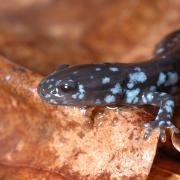
Why did the Amphibian Cross the Road?
The short answer is, to get to the vernal pool! Of course, there’s more to it than that, so here’s a bit more about vernal pools and why many amphibians are now on the move.
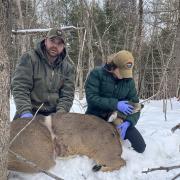
Team Effort to Help a Doe in Peru
Recently, a doe was seen with a cable cinched around her waist. There was concern that the cable could continue to tighten and affect her survival so we tried to see if we could intervene.
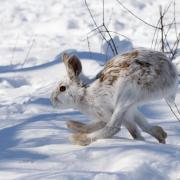
Signs of Spring
In Maine, March is the perfect time to start taking a moment here and there to notice the changing wildlife sights, sounds, and smells around you.
Keep In Touch!
Enter your email or mobile number to receive the latest news from MDIFW.